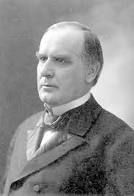Fear Factor
Be afraid. Be very, very afraid.
A line of argument we’re mostly used to hearing from Thugs, but being pushed hard by the Institutional "Fuck You Retards" Democrats in the run up to this election. Even my activist brother somewhat bought the latest variation- that re-districting might be effected by the results in November.
Not so much it seems.
Debunking the Redistricting Myth
by Dylan Loewe- Speechwriter, Author of Permanently Blue
Via Huffington Post, Posted: September 13, 2010 08:00 AM
Many have suggested that if Republicans are able to retake the majority in Congress this fall, they’ll be able to maintain that majority over the long-term, largely as a result of a subsequent redistricting process they expect to control. Some have even argued that Republicans could gain the power to draw as many as 25 congressional districts in their favor.
…
(Only) 23 states … will be at the center of the redistricting battle.
…
Democrats will be in a better position during this redistricting in at least 8 states, and, depending on the outcome in November, could very well be in better shape in as many as 11 states. Republicans, on the other hand, will find themselves in an improved partisan environment in just 6 states.
…
The states where Republicans are expected to be better positioned (Alabama, Georgia, Indiana, Missouri, Tennessee, and South Carolina) are midsized states, with an average of only about 8 congressional districts each.
The states where Democrats are expected to improve, on the other hand, (Colorado, Florida, Illinois, Massachusetts, Minnesota, New York, Virginia, and Michigan) include a significant number of very large states, with an average of about 17 congressional districts.
…
Over the last ten years, 80 percent of the population growth in this country has come from minorities, overwhelmingly in metropolitan areas. When states like Texas are awarded new congressional districts (they are expected to get four this cycle), those districts will have to be drawn in the same metropolitan areas where such high minority population growth is occurring. Barack Obama won 80 percent of the minority vote. He won every major city in Texas except Fort Worth. This means that these new districts are going to be drawn in areas that are going to be highly populated with Democrats, ones that are almost certainly going to send Democrats to Congress. This, of course, will play out beyond Texas. In fact, of the 10 new districts expected to be allocated, there is reason to believe that at least 8 of them will end up in Democratic hands.
I don’t mean to understate the power of gerrymandering. But even gerrymandering can’t solve this problem for the Republican Party. In the middle of last decade, when Tom Delay and state Republican leaders redrew the Texas state map in a way that removed half a dozen Democratic seats, they didn’t touch the minority districts already in place. Why? Because they were concerned that doing so would invoke the Voting Rights Act and send the newly drawn map to the courts, where it would likely be redrawn by judges. (If that happened in 2011, Democrats could gain as many as 10 seats in Texas.) During the 2011 redistricting, it won’t just be the already existing minority districts that Republicans will have to avoid. It will be the new ones too. With the vast majority of the population growth coming from minorities, the vast majority of the new districts are likely to require minority representation. And for the first time since the Voting Rights Act was passed, the Attorney General in charge of overseeing the process will have been appointed by a Democratic president.
…
(E)ven if taken to the extreme–even if Republicans are able to ensure, in each case, that a Democratic seat gets erased, that still won’t do as much for the Republican Party as they think. Such a district is likely to be erased in predominantly white, rural areas, where population has declined over the last decade. That means that the Democratic districts that will be erased are more likely to be moderate ones, the kinds that Blue Dogs represent.
…
By the time redistricting is over, not only will Democrats have secured for themselves a far more favorable map, they will have also gone through a process that will unify their caucus, increasing the number of seats where progressives can win, in exchange for decreasing the number of seats where Blue Dogs can win.
Folks, the only thing they’re really afraid of is losing their phoney baloney jobs and getting second pick at the choice offices and parking spots on Capitol Hill.


Recent Comments